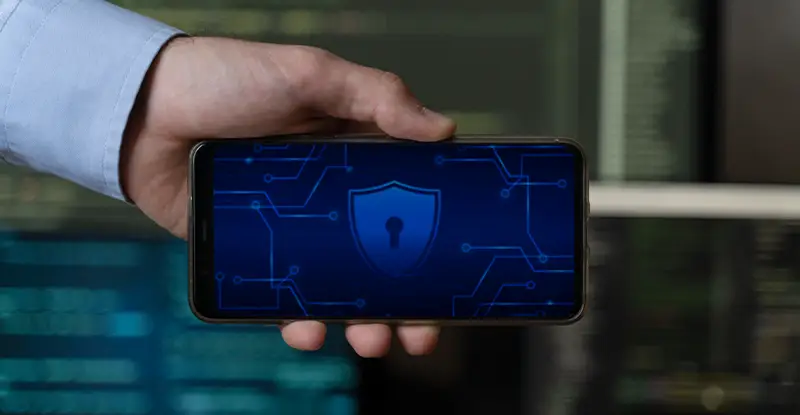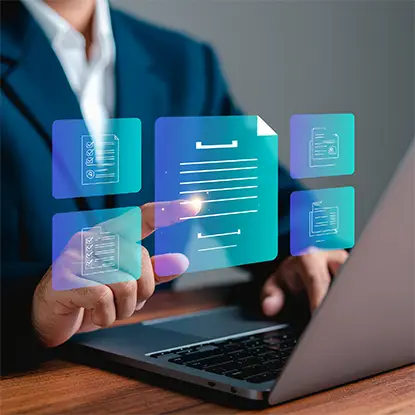Top 7 Benefits of Using VPN Services for Everyday Browsing


Your ISP knows you spent three hours on Reddit last night. They tracked every meme, every comment, and that embarrassing health question you googled at 2 AM. Welcome to the internet without a VPN, where privacy is basically a myth.
But here's the thing: VPNs aren't just for tech nerds and paranoid conspiracy theorists anymore. They've become essential tools for anyone who values their digital privacy (or just wants to watch The Office on Netflix UK).

VPNs secure your browsing - Artsyl secures your documents. With docAlpha, eliminate manual data entry and streamline workflows using intelligent capture, validation, and ERP integration. Discover how AI-powered automation protects your business.
Internet providers collect absurd amounts of data about your browsing habits. We're talking everything from your shopping addiction to those late-night Wikipedia rabbit holes. And yes, they sell this information to the highest bidder.
When you fire up a VPN, your traffic gets encrypted before your ISP even sees it. They'll know you're using data, sure, but the actual content? Complete gibberish to them. CometVPN services employ AES-256 encryption (the same stuff governments use for classified documents), turning your browsing data into an unreadable mess that would take centuries to decode.
Think about it: ISPs made $72 billion last year just from selling user data. That's your data funding someone's yacht collection. A VPN keeps your browsing habits exactly where they belong: with you.
Recommended reading: How Tools and Technology Are Transforming Business Workflows
Ever tried accessing content only to get that annoying "not available in your region" message? It's 2025, and we're still dealing with digital borders that make zero sense.
Streaming services play this game constantly. Netflix US has nearly twice the content of some international versions. Academic papers hide behind regional paywalls. Even YouTube videos get blocked based on where you're sitting. VPNs let you pick your digital location: connect through a UK server, and suddenly you're British as far as the internet's concerned.
Business travelers know this struggle well. You're in Singapore for a conference, but your company's internal tools only work from US IP addresses. One click on a VPN, and you're virtually back home. Harvard Business School research found that 47% of remote workers couldn't function internationally without VPN access.
Keep Privacy in Finance Too - Automate Your AP
Just like a VPN shields your data online, InvoiceAction protects your finance teams from time-consuming, error-prone AP processes. Capture, extract, and validate invoices with AI and touchless workflows.
Book a demo now
Using public WiFi without protection is like leaving your front door open with a sign saying "expensive stuff inside." Hackers love coffee shop networks because they're goldmines of unprotected data.
Here's what actually happens: criminals use packet sniffers (basically digital eavesdropping tools) to intercept everything you send over these networks. Passwords, credit cards, private messages, all fair game. But when you're running a VPN, they intercept encrypted nonsense instead of your banking credentials.
The statistics are genuinely terrifying. About 87% of people check their bank accounts on public WiFi. Man-in-the-middle attacks happen every single day at airports and hotels. Yet a simple VPN connection makes you virtually invisible to these digital pickpockets.
Recommended reading: Protecting Your Business Automation Pipeline with VPN Encryption
Notice how Netflix gets mysteriously slower during evening hours? That's not coincidence; it's your ISP playing traffic cop. They deliberately slow down streaming and gaming services to "manage network congestion" (translation: save money on infrastructure).
VPNs hide what type of traffic you're generating. Your ISP sees encrypted data flowing but can't tell if it's Netflix or email. No identification means no throttling. Gamers report 50% better performance when ISPs can't detect their gaming packets.
And it's not just entertainment getting throttled. Cloud backups crawl, video calls stutter, and file transfers drag. The Economist reports that throttling costs businesses around $4,500 per employee yearly in lost productivity. That's real money disappearing because ISPs want to squeeze their networks.
Encrypt Chaos. Automate Sales Orders.
If VPNs hide your location, OrderAction hides the complexity of processing PDF, email, and EDI orders. AI extracts, validates, and pushes clean data to your ERP - fast and touch-free.
Book a demo now
Airlines and hotels are notorious for this: check a flight price, come back later, and somehow it's $50 more expensive. They track your interest and jack up prices accordingly. It's digital price discrimination, and it's completely legal.
VPNs let you shop anonymously. Compare prices from different virtual locations (tickets often cost less when "purchased" from different countries). Users save an average of 23% by VPN shopping, especially on travel bookings. Plus, you avoid those creepy retargeting ads that follow you around for weeks after browsing something once.
Banking gets trickier though. Financial institutions monitor login locations for fraud prevention. Stick to servers in your home country for banking unless you want to spend hours on fraud verification calls.
Recommended reading: Data Protection in 2025: What You Need to Know
Not everyone lives where free speech is guaranteed. Journalists in restrictive countries, corporate whistleblowers, and activists rely on VPNs for safety, not just privacy.
But even in democratic countries, anonymous browsing matters. Maybe you're researching a medical condition without wanting it attached to your digital profile forever. Or job hunting without tipping off your current employer who monitors company networks. Wikipedia's data shows 400 million people use VPNs to bypass government censorship, but millions more use them for everyday privacy.
Intelligent Automation: The VPN for Your Back Office
You protect your browsing with a VPN - now protect your operations with AI. From document capture to ERP integration, Artsyl’s intelligent automation solutions minimizes risk and maximizes efficiency.
See how AI powers smarter decisions at scale.
Book a demo now
Digital advertisers track you across thousands of websites, building profiles so detailed they'd make government surveillance jealous. Every click, hover, and scroll gets recorded and analyzed.
VPNs break these tracking chains. Rotating IP addresses and blocked tracking cookies make it nearly impossible to build coherent user profiles. The result? 65% fewer creepy ads following you around the internet. Data brokers can't sell what they can't collect.
Look, VPNs aren't perfect privacy solutions. But in a world where every click gets monetized and every search gets stored, they're pretty essential. The internet wasn't designed with privacy in mind, but that doesn't mean we have to accept constant surveillance as the price of admission.
Recommended reading: How Cloud Infrastructure Powers Scalable Proxy Networks